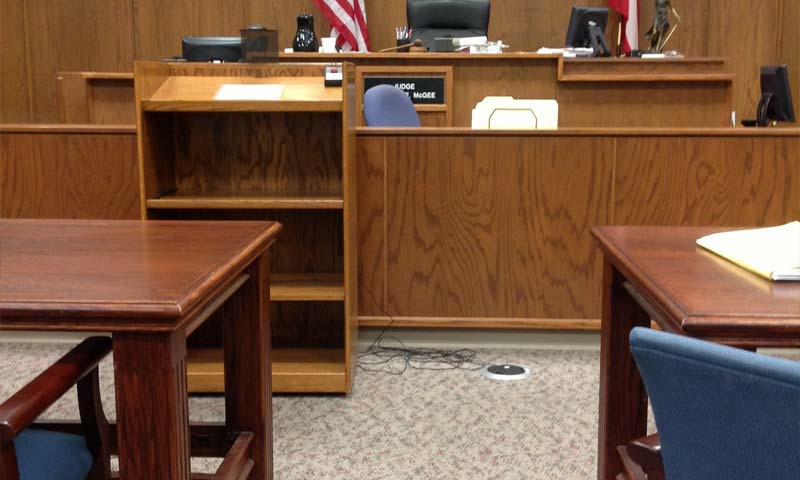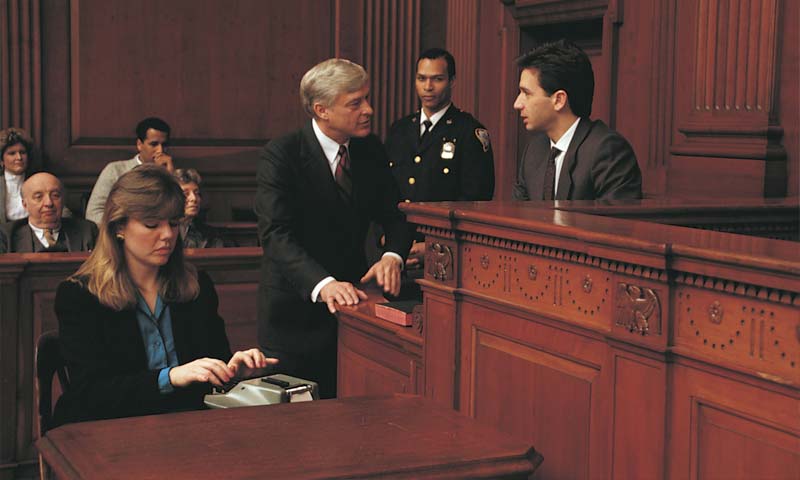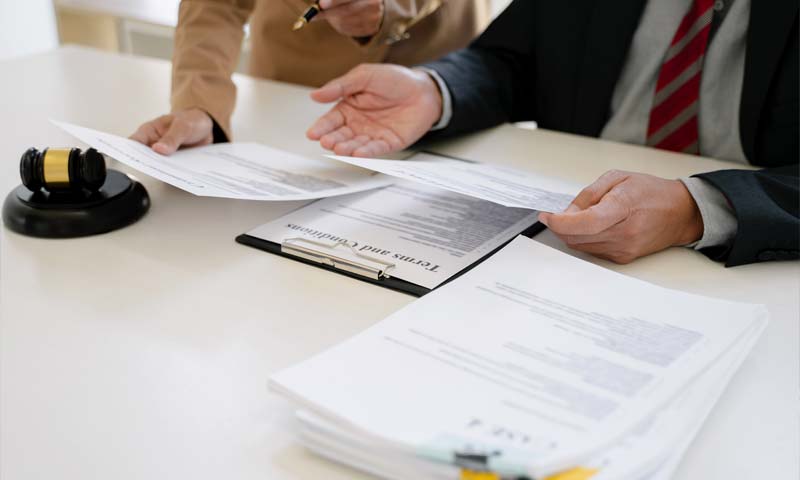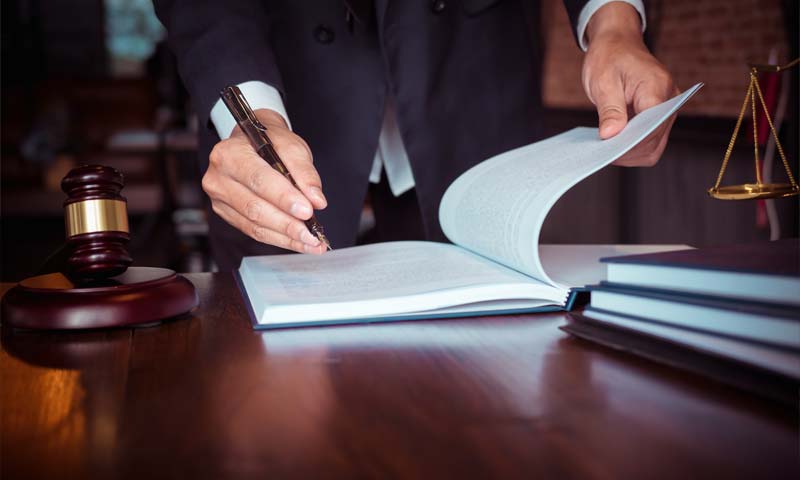Bankruptcy FAQ
Will My Wages Be Garnished?
If you have been sued for a credit card balance, medical bill or other debt, it means the court found that you owed the money and a “judgment” has been entered against you. One of the most common ways to satisfy a judgment is wage garnishment. In Illinois, a creditor can take 15 percent of your gross — not net — income through wage garnishment until the judgment is paid in full.
Often, wage garnishment occurs with little warning. One week, you receive copies of paperwork filed with the court; the next, you find your paycheck to be substantially lighter. If you are already struggling with debt and living expenses, a garnishment can be the final straw.
Protecting Your Wages From Garnishment
Filing for bankruptcy protection will put a stop to garnishment because of an automatic stay that goes into effect the day you file. This prevents creditors from pursuing all collection activities, including garnishment.
Filing for bankruptcy protection not only stops a garnishment — it might permit you to recover money that has been garnished but not transferred to the creditor. To do so, you must act as quickly as possible.
Can I Keep My House?
This is one of the biggest questions when it comes to filing bankruptcy. Generally speaking, you usually can save your home and still obtain debt relief under either Chapter 7 or 13. The trick is to determine which category best suits your situation. Brian G. Hiatt can assist you in making this determination, but here follows a brief, general discussion of the issues involved.
Reaffirming Your Mortgage
If you are filing Chapter 7 in Illinois, are current on your mortgage payments and have less than $15,000 in equity (or $30,000 if you are married), you can “reaffirm” your mortgage, that is, agree to continue paying the mortgage despite the bankruptcy.
If you reaffirm the mortgage, you will be obligated to pay it after your discharge, even if your financial circumstances change and you can no longer afford it.
Filing Chapter 13 To Save Your Home
If you are behind in your mortgage payments, Chapter 7 will not work, unless you wish to surrender the home or pursue a loan modification. But you can avoid or stop foreclosure by filing a Chapter 13 and proposing a plan to catch up your payment arrearage. However, to do so you must have disposable income that will fund a repayment plan.
Preventing Liquidation Of Your House
If you own your house outright or have substantial equity (more than $15,000 for an individual filer or $30,000 for a married couple), you risk liquidation of your home if you file Chapter 7. You can file Chapter 13, but you have to pay your creditors at least as much as they would get from the sale of the house in a Chapter 7.
Can I Keep My Car?
If you file Chapter 7 and you own a vehicle outright, you can keep the car if it is worth $6,400 or less by using your Illinois motor vehicle and personal property exemptions.
Alternatively, if you have a note secured by your vehicle, you can keep the car by reaffirming the note, which means you agree to continue making the payments despite the bankruptcy.
You also can use “redemption” to keep your vehicle. Redemption requires you to pay the fair market value of the vehicle in full. This is a useful remedy if you are “upside down” on a vehicle. A handful of finance companies offer redemption loans that are repaid like an ordinary car loan.
Keeping A Car When Filing Chapter 13
In Chapter 13, you can keep your paid-for vehicles regardless of their value, as long as your payment plan delivers at least as much as your creditors would get if your non-exempt assets were liquidated in a Chapter 7. If you owe money secured by vehicles, you can include the payments in your plan or pay outside the plan.
If you are behind in your payments, you can catch up your arrearage in your plan. And if your vehicle was purchased more than 2.5 years ago, you may be able to reduce the amount owed to the value of the vehicle, restructure the note over the term of your Chapter 13 plan and reduce the interest rate.
Won’t filing for bankruptcy destroy my credit for good?
No. Filing for bankruptcy will have a temporary, short-term negative impact on your credit, but the effect of this will be limited as you will be able to quickly begin rebuilding your credit. On the other hand, by continuing to struggle from bill cycle to bill cycle, you might actually do worse long-term damage to your credit score by continuing to miss payments and defaulting on your loan obligations.
How long will it take for my bankruptcy to be finalized?
There is no guaranteed timeline for every single bankruptcy, but I can help most clients finalize their bankruptcies within three months. I know my clients are eager to get through the process as quickly as possible and move on with their lives, and I want to help make that happen.
Will my creditors be able to object to or stop my bankruptcy from being approved?
Technically, they can try, but this rarely happens. As part of your bankruptcy, you will have to attend a meeting referred to as a meeting of creditors or 341 hearing. This is when you meet with your bankruptcy trustee, who will go over your assets and debts and review the proposed terms of your bankruptcy. (If you file for Chapter 13, he or she will also verify that you can afford to pay back some of your debts.) Creditors are invited to attend this meeting and contest a proposed settlement, but they almost never attend.
Will I have to go to court?
The meeting of creditors mentioned above is usually all that my clients are required to attend. This is not a court hearing, but rather a meeting with a bankruptcy trustee. These meetings normally take place in private conference rooms.
More Questions? Ready To Begin The Process? Contact Brian G. Hiatt Today.
Attorney Brian G. Hiatt can help you learn more about how filing bankruptcy can help you protect your possessions from being sold off to pay for your debts. Contact the firm in Bourbonnais by calling 815-304-5441 or by emailing the firm directly.



















